Inspired by the plight of the Syrian refugees, the Irish singer-songwriter reveals how she created “a song to celebrate migration”
Ireland’s Wallis Bird has released five albums since 2007 and received frequent acclaim along the way, winning two Irish Meteor Awards (most recently for Best Female Artist), a German Music Authors’ Prize and two nominations for the Choice Music Prize, Ireland’s equivalent to the UK’s Mercury Prize. She was nominated as Artist of the Year at the 2019 International Folk Music Awards.
As The River Flows is a bold return, the first single to be taken from her new album, Woman, due out later this year. Hearing that the song tackles the complex issues of immigration, and is dedicated to Alan Kurdi (the three-year-old Syrian refugee whose drowned body was photographed in 2015 on a Turkish beach), we asked Wallis to delve deeper into its politically charged creation…
Inspiration
This is a song that practically wrote itself. It was what I call ‘dream state writing’. That kind of writing is rare and pure for me and acts as a kind of oracle. I leant a lot about myself from those songs. I was working on about 20 other songs in tandem and this was a pleasure that I kept referring to while concentrating on the others, so you can sense the free flow movement and the abandon because of that. I spent about two years chipping away at it, not trying to encase it or overly shape where it was going. The song definitely wanted me to make sure to chose my words correctly, and yet, when I tried to calm or metaphorise a line, it kept bringing me back: “Say what you’re saying, let it out.” I wasn’t pleased that I was writing such sad or angry lyrics, I also wasn’t pleased that I referred to Alan Kurdi personally, but it was determined to come out. So I just let it. It is a song to celebrate migration, yet to stand in awe and solidarity with migrants and fight ignorant racism in people and political agendas.
Lyrics
The song begins as a conversation to the world, explaining what I feel humans, in the planetary sense, are made of: energy and fluidity. By the second verse it moves to a conversation with the listener, we compare our lives with those who live elsewhere. The chorus explains where we go. The third verse brings us to a conversation between myself and a racist, then is projected at Brexiteers and the right-wing particularly. And finally, it lands on a hopeful element and returns to celebrate migrants, and their journey “overcoming mystery.”
Music
The melody has a free flow, lines rolling into one another, representing water, there is so much to say on this subject so it rolls off. The chorus is the stamping foot, a protest. I repeat ‘to safety, to safety, to safety,’ to instil power that we are simply humans searching for safety – the very basis of humanity. The form of the songs is A A B A A C B B B. It was a natural progression.
It began as a piano song and arpeggiated synthesizer. It was rather ‘dancey’, then it emigrated to the piano on its own, and became regal and that’s where the ‘conversational’ second verse happened. Then it evolved across the guitar and that was when it began getting fast, that’s where the energy began pouring all over it. The guitar brought in the long builds. Lucas Herweg came into the song at this point. We asked Lucas to throw some ideas onto the song. And he really delivered. He introduced the abrupt stops and the extreme build and the hypnotic rhythm at the end, that was where the song came alive. When he sent it through and I can only say that I was screaming and bawling my eyes out by the end of it. My partner ran into the room because she thought something was wrong! Even right now as I think of it, I feel deep gratitude and pride for that moment at the end of the build. So much emotion was stored, and he played with that, then he let it go. And when I thought that was the release, then he introduced the snare, and I lost my life again! It got even more relentless! It was beautiful work on his behalf. He is instrumental in the production of this song. Before that, it was just one long rolling build, that passed you by. So I’m really thankful for that. The final build sees the chorus used as a mantra, repetition to build up strength to kick down the door. And finally, at the end of the build, I move from minor to major – success, bursting through, hope, continuation, elation, joy…
In The Studio
I recorded three versions in my home studio before I finally settled on piano and guitar – the guitar I recorded at home. Interestingly, there’s no bass on the song until the very end, so I’m very happy that the sound feels like it is already there. The piano was demoed on my Nord 3, then re-recorded with Marcus Wüst, my lifelong producing partner in Kleine Audiowelt. We originally tried many different versions of vocal, singing into the piano strings with a binaural style miking system that was interesting but shit! And as is often the case, we went with the demo vocal take because it was affected and apathetic when it should and shouldn’t be, which served the lyrics in an unusual way. Marcus added the strings and beautiful atmospheric and alarming field noises and synthesisers and Lucas added the synth bass at the end of the song. Dave Mette is the wonderful drummer.
Final Thoughts
I couldn’t be happier with this song. It’s immediately gratifying to me. And shows the wealth of beautifully talented people in my life. It’s a message that means the world to me and I hope that people listen to it and feel empathy, or feel angry about it, basically feel anything and think about themselves, this life and (I know it sounds over the top!) our humanity.




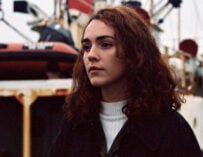

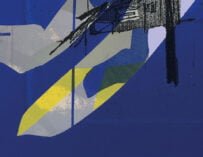
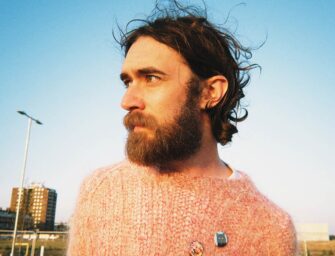

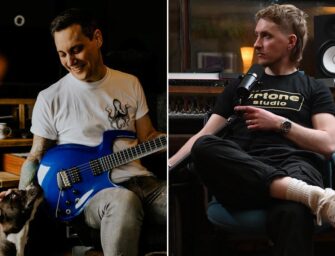
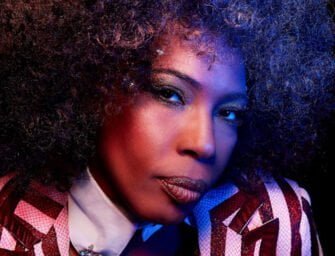


























Related Articles